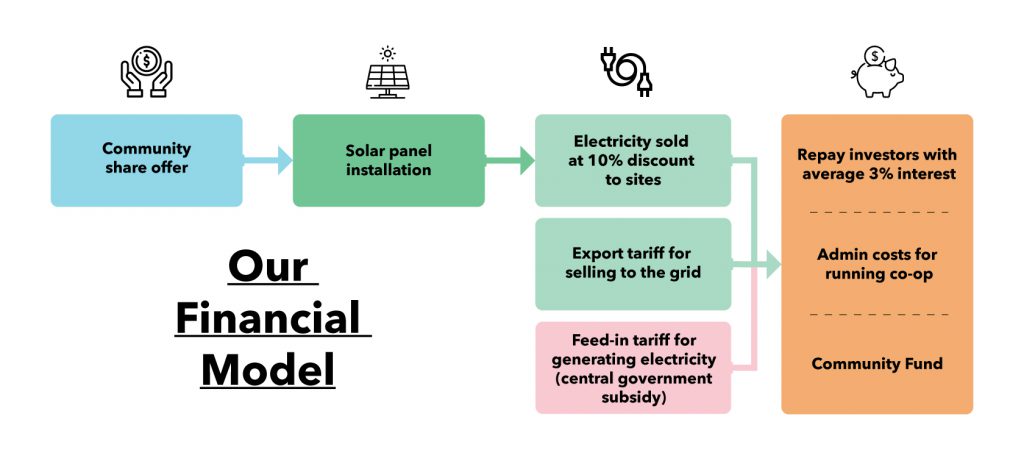Last month we welcomed the Chancellor’s summer economic update and his commitment to the green economy. The £3bn package to build green homes, support energy efficiency and decarbonise social housing starts the UK on the road to securing our planet’s future and creating a net-zero economy.
This package does not appear to support Community Energy (CE), a sector that creates multiple financial and social benefits. In 2019 CE projects prevented 65,000 tonnes of CO2 emissions, created £1.9m of savings and distributed £2m in grants and loans. As CE groups work locally these funds have knock-on effects supporting residents, businesses and stimulating local economies across the country.
The Community Energy sector has enormous potential to create behaviour change, a key factor in the UK’s contribution to stopping global warming according to the Committee on Climate Change. As trusted local organisations CE groups engaged with 234,000 community members on energy efficiency. The sector provides advice, helps to reduce bills and signposts our neighbours to support through what can be a complex maze of utility providers. CE organisations across the country work with food banks, advice centres and charities to create local support networks, providing aid to people at a time of crisis.
The root of the Community Energy sector is to create local energy, often in the form of installing solar panels. This leads us to work on sites and buildings that larger solar developers do not want. We partner with schools, libraries, community centres and work with social housing, which means we are ideally placed to support local authorities to decarbonise public buildings at a low cost. We do this while creating training opportunities to ensure that the energy revolution is fair by including as many people as possible.
The biggest challenge to the sector recently has been the reduction and removal of the Government’s Feed-in Tariff (FiT), a subsidy awarded for the installation of zero carbon electricity generation. While the renewables industry is much stronger than it was at the launch of the FiT, Community Energy’s ability to create the wide range of benefits above is now severely restricted.
The summer economic update is an incredibly positive step, but if we want to create a fairer economy which benefits everyone while reducing our carbon footprint, sectors like Community Energy need all the support we can get. We call on the Government to create support for the Community Energy sector and all social enterprises involved in decarbonizing our future as soon as possible.

